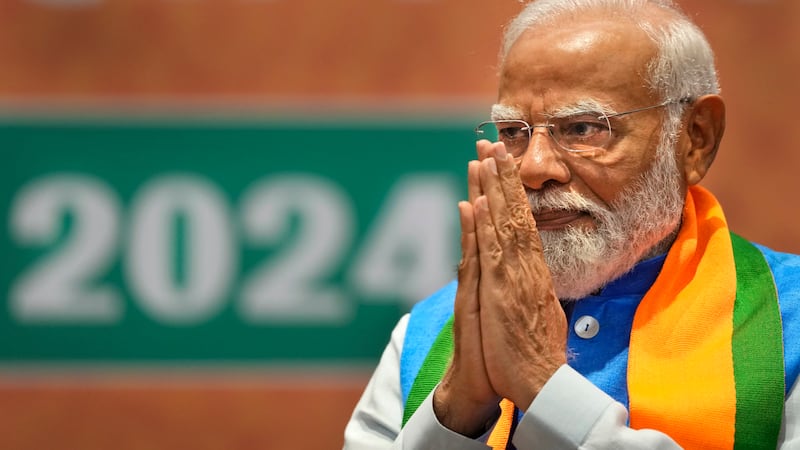The decades-long tension between the Catholic and integrated education sectors has been reignited by a call for the government to stop promoting integrated schools. Education correspondent Simon Doyle reports
CATHOLIC school chiefs are urging the education minister to ditch a government commitment to promote integrated schooling.
In a hard-hitting submission to an assembly inquiry, the Department of Education was told it should forgo facilitating a sector that has managed only modest growth in 30 years.
Such a move would mean effectively ripping up part of the Good Friday Agreement.
Integrated education campaigners are furious with what they regard as an aggressive attack by the Council for Catholic Maintained Schools (CCMS).
Responding to an inquiry into shared and integrated education, CCMS also said it was time to linguistically move away from the term integrated education.
Of the almost 1,200 schools in the north, just 62 are integrated.
The assembly's committee for education is now undertaking an inquiry into both 'shared' and integrated education.
While the Department of Education has a statutory duty to promote some sectors including integrated, much of the recent focus has been on promoting new models of shared education.
CCMS, chaired by Bishop of Dromore John McAreavey, is the managing authority for 754 schools in the Catholic maintained sector of education in Northern Ireland.
It also manages the employment of all teaching staff within the sector, a number in excess of 8,500.
The intention of bringing Catholic and Protestant children together in one school has only partially succeeded, according to its inquiry sub-mission, which has been obtained by The Irish News.
It also claimed the many polls which are conducted on public opinion towards integrated education and which appear to demonstrate "significant" support for integrated schools "do not in practice reflect that".
Parental preference, CCMS noted, continues to be exerted along traditional lines, as parents send their children to schools which are largely in keeping with their religious, cultural, social or other beliefs and traditions.
Indeed, in many cases their choice of school "may be more to do with the quality of education or convenience rather that religious affiliation".
"Linguistically we should move away from the term integrated education and begin focusing on how schools can explore a spectrum of shared options based on educational provision and access rather than on a political or philosophical basis," the document continued.
"CCMS also believes that, after 30 years, the time has come for the department to dispense with its statutory duty to encourage and facilitate the development of integrated education.
"If after 30 years the sector has grown to the point where it commands only 6.89 per cent of the school-age population in Northern Ireland, the department should evaluate the public appetite for 'integrated education' as a sectoral entity, reconsider the 'statutory duty' and look to the promotion of other 'initiatives' which have a greater chance of making more effective use of limited resources.
"The existence of various forms of education, each espousing its own distinctive ethos, is evident throughout the world as is the recognition that where change is deemed to be necessary it can be brought about while maintaining respect for each individual education sector or provider."
The government commitment to integrated education is outlined in various documents including the reconciliation and victims of violence section of the Good Friday Agreement.
It states: "An essential aspect of the reconciliation process is the promotion
of a culture of tolerance at every level of society, including initiatives to facilitate and encourage integrated education."
Integrated campaigners argue that CCMS is, in effect, urging is the removal of this article, which they point out was voted for by a majority of citizens north and south and endorsed by three governments.
Noreen Campbell, chief executive of the Northern Ireland Council for Integrated Education, said the CCMS submission was "revealing but ill-informed".
"CCMS called on DE [Department of Education] to relinquish its statutory obligation to encourage and facilitate integrated education," she said.
"In doing so, CCMS is also calling for a rewriting of the Belfast Agreement, an international agreement ratified by the vast majority of the population and the foundation of our peace process. This historic agreement, recognising the dangers of institutionalised division, also commits to supporting integrated education.
"It is strange that, at a time when most seek ways to move beyond segregation and division, and look to create innovative models for re-imaging our educational system, that CCMS chooses to attack integrated education."
Ms Campbell said the "attack" was doubly surprising since CCMS itself stated that "an integrated, shared system of education is achievable but it has to develop in a society which is mature to the point where individual and distinct sectors are recognised for the contribution they make to a shared society".
"Integrated education's contribution as pathfinders for shared education has not been recognised, and certainly not valued, in CCMS's partisan submission," she claimed.
"Integrated education is based on the premise that education must play an active role in developing and shaping a mature society. In the
vision presented by CCMS, education reflects and perpetuates our divided society.
"Through their contentious submission, CCMS has reignited the very important debate on education and moved it from the halls of Stormont into the public domain.
"NICIE looks forward to the debate."


